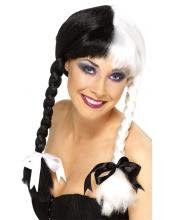
 I really wanted to like this show. I was eager to report that Shakespeare Santa Cruz had uncovered a lost gem and polished it to rare brilliance. I’m always ready to root for the underdog, even if the dog is a play. "All's Well That Ends Well" has a bad reputation. It’s neither comedy, nor tragedy, but a “problem play” due to its “confusing tone, which shifts violently between dark, psychological drama and more straightforward comic material.“ It is a great challenge for any director. To wrestle success from this dubious material requires a strong vision, or at least a clearly defined, unique perspective. Unfortunately, Director Tim Ocel is serving it up straight, and I‘m sorry to say that in case of “All‘s Well“, a careful, sober, true to the letter production is just not enough. Why? Because Shakespeare never really tells us what drives the main characters, what makes them tick. We need the director to give us an idea as to why these kids behave so strangely, and why on earth we should like this perplexing pair. The Bard doesn‘t. Bertram is a spoiled brat, a prick. He inexplicably hates Helena, whom everybody else adores. Helena is a heroic heroine, but her fixation on a guy who is not only unworthy of her, but also clearly disgusted with her, makes her look insane. Why do they act, why do they feel the way they do? We're left in the dark. The comic parts of the play were a welcome relief from the conundrum, and great fun! I enjoyed every second that Lavatche or Parolles appeared on the stage. John Pribyl is terrific as the clown, the same is true for Allen Gilmore as Bertram‘s cowardly side kick. Still, I left unsatisfied and determined to look into how other companies had tackled this "problem play." One solution that occurred to me straight away: why not simply place the rich comic material at the heart of the production, and have the weak love story play out in the background? What else have I found? If we dared to disconnect (commoner) Helena's obsession with marriage to (aristocrat) Bertram from the romantic feelings she never tires to pronounce, what would we find? An aggressive, skillful social climber, which to me would appear a more plausible figure than the noble, humble, inexplicably love-struck creature SSC presents. If we stressed how everybody emasculates Bertram, how his mother, and Helena, and the king, order him around without taking his wishes into account, what would we find? A rebel with a cause, a much more human, more likable Bertram.
I really wanted to like this show. I was eager to report that Shakespeare Santa Cruz had uncovered a lost gem and polished it to rare brilliance. I’m always ready to root for the underdog, even if the dog is a play. "All's Well That Ends Well" has a bad reputation. It’s neither comedy, nor tragedy, but a “problem play” due to its “confusing tone, which shifts violently between dark, psychological drama and more straightforward comic material.“ It is a great challenge for any director. To wrestle success from this dubious material requires a strong vision, or at least a clearly defined, unique perspective. Unfortunately, Director Tim Ocel is serving it up straight, and I‘m sorry to say that in case of “All‘s Well“, a careful, sober, true to the letter production is just not enough. Why? Because Shakespeare never really tells us what drives the main characters, what makes them tick. We need the director to give us an idea as to why these kids behave so strangely, and why on earth we should like this perplexing pair. The Bard doesn‘t. Bertram is a spoiled brat, a prick. He inexplicably hates Helena, whom everybody else adores. Helena is a heroic heroine, but her fixation on a guy who is not only unworthy of her, but also clearly disgusted with her, makes her look insane. Why do they act, why do they feel the way they do? We're left in the dark. The comic parts of the play were a welcome relief from the conundrum, and great fun! I enjoyed every second that Lavatche or Parolles appeared on the stage. John Pribyl is terrific as the clown, the same is true for Allen Gilmore as Bertram‘s cowardly side kick. Still, I left unsatisfied and determined to look into how other companies had tackled this "problem play." One solution that occurred to me straight away: why not simply place the rich comic material at the heart of the production, and have the weak love story play out in the background? What else have I found? If we dared to disconnect (commoner) Helena's obsession with marriage to (aristocrat) Bertram from the romantic feelings she never tires to pronounce, what would we find? An aggressive, skillful social climber, which to me would appear a more plausible figure than the noble, humble, inexplicably love-struck creature SSC presents. If we stressed how everybody emasculates Bertram, how his mother, and Helena, and the king, order him around without taking his wishes into account, what would we find? A rebel with a cause, a much more human, more likable Bertram. My advice for everybody curious about this rarely performed play would be to thoroughly prepare for it, not only by reading Shakespeare, but also by ingesting some criticism and reviews. Come ready, enjoy the show, and form your own opinion.
(Photo by r.r. jones: Allen Gilmore as Parolles)








Nice review.
ReplyDelete